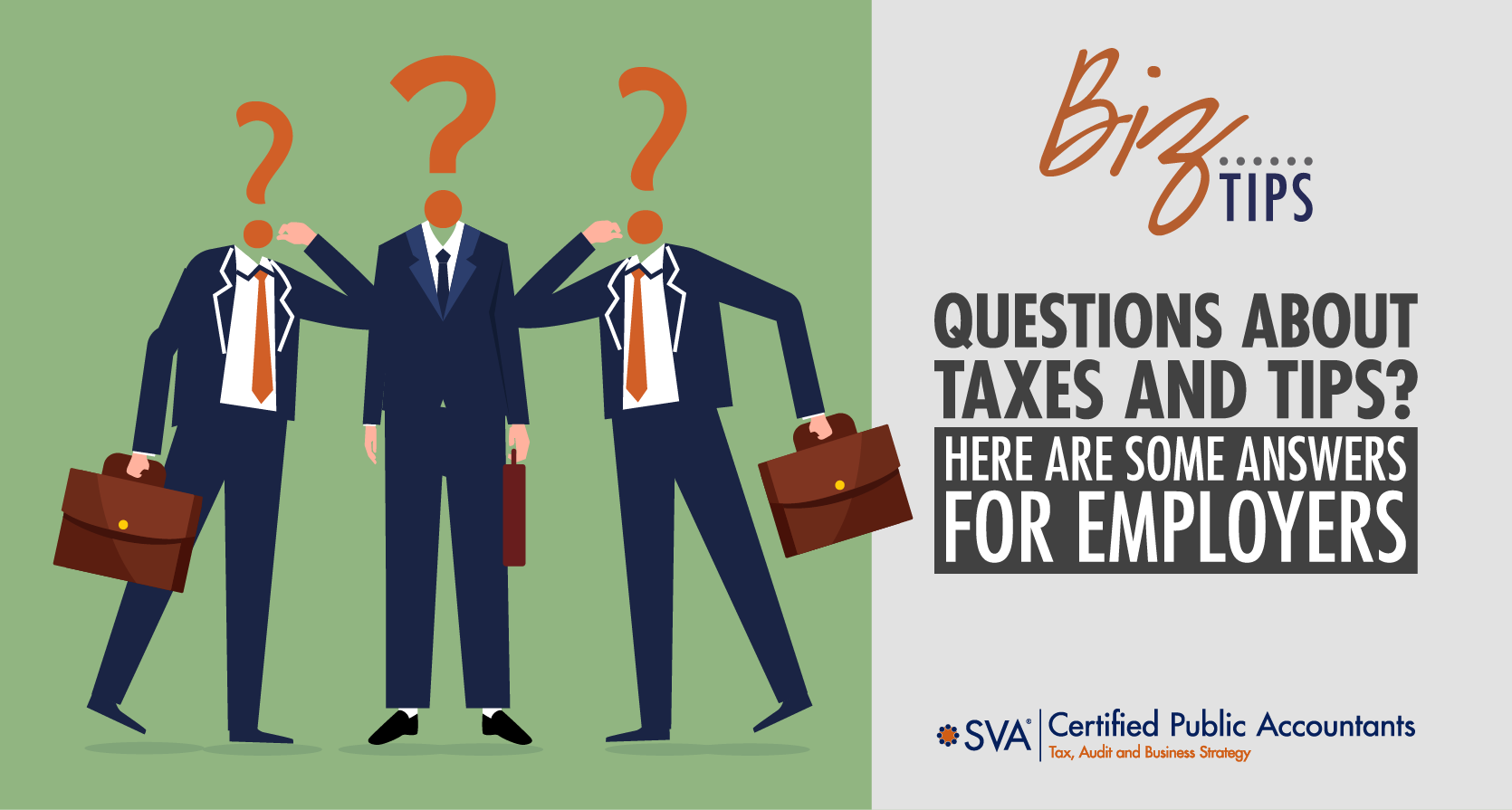| Highlights: |
- The article explains how tips are treated for tax purposes, clarifying employer and employee responsibilities for reporting and withholding requirements.
- It addresses common employer questions around tip income, payroll taxes, recordkeeping obligations, and compliance with federal regulations.
- Guidance focuses on establishing proper processes to reduce risk, avoid penalties, and ensure accurate payroll and tax reporting.
|
Businesses in certain industries employ service workers who receive tips as a large part of their compensation. These businesses include restaurants, hotels, and salons. Compliance with federal and state tax regulations is vital if your business has employees who receive tips.
During the campaign, President Trump promised to end taxes on tips. While the proposal created buzz among employees and some business owners, no legislation eliminating taxes on tips has been passed. For now, employers should continue to follow the existing IRS rules until the law changes — if it does. Unless legal changes are enacted, the status quo remains in effect.
With that in mind, here are answers to questions about the current rules.
How are Tips Defined?
Tips are optional and can be cash or noncash.
| Cash Tips |
Are received directly from customers. They can also be electronically paid tips distributed to employees by employers and tips received from other employees in tip-sharing arrangements. Workers must generally report cash tips to their employers. |
| Noncash Tips |
Are items of value other than cash. They can include tickets, passes or other items that employees receive from customers. Workers don’t have to report noncash tips to employers. |
Four factors determine whether a payment qualifies as a tip for tax purposes:
- The customer voluntarily makes a payment
- The customer has an unrestricted right to determine the amount
- The payment isn’t negotiated with, or dictated by, employer policy
- The customer generally has a right to determine who receives the payment
There are more relevant definitions.
| Direct Tip |
occurs when an employee receives it directly from a customer (even as part of a tip pool). Directly tipped employees include wait staff, bartenders and hairstylists. |
| Indirect Tip |
occurs when an employee who normally doesn’t receive tips receives one. Indirectly tipped employees can include bussers, service bartenders, cooks and salon shampooers. |
What Records Need to Be Kept?
Tipped workers must keep daily records of the cash tips they receive. To do so, they can use Form 4070A, Employee’s Daily Record of Tips. It’s found in IRS Publication 1244.
Workers should also keep records of the dates and values of noncash tips. The IRS doesn’t require workers to report noncash tips to employers, but they must report them on their tax returns.
How Must Employees Report Tips to Employers?
Employees must report tips to employers by the 10th of the month after the month they were received. The IRS doesn’t require workers to use a particular form to report tips. However, a worker’s tip report generally should include the:
- Employee’s name, address, Social Security number and signature
- Employer’s name and address
- Month or period covered
- Total tips received during the period
Note: If an employee’s monthly tips are less than $20, there’s no requirement to report them to his or her employer. However, they must be included as income on his or her tax return.
Are There Other Employer Requirements?
Yes. Send each employee a Form W-2 that includes reported tips. In addition, employers must:
- Keep employees’ tip reports
- Withhold taxes, including income taxes and the employee’s share of Social Security and Medicare taxes, based on employees’ wages and reported tip income
- Pay the employer share of Social Security and Medicare taxes based on the total wages paid to tipped employees as well as reported tip income
- Report this information to the IRS on Form 941, Employer’s Quarterly Federal Tax Return
- Deposit withheld taxes in accordance with federal tax deposit requirements.
In addition, “large” food or beverage establishments must file another annual report. Form 8027, Employer’s Annual Information Return of Tip Income and Allocated Tips, discloses receipts and tips.
What is the Tip Tax Credit?
Suppose you’re an employer with tipped workers providing food and beverages. In that case, you may qualify for a valuable federal tax credit involving the Social Security and Medicare taxes you pay on employees’ tip income.
How Should Employers Proceed?
Running a business with tipped employees involves more than just providing good service. It requires careful adherence to wage and hour laws, thorough recordkeeping, accurate reporting and an awareness of changing requirements.
While President Trump’s pledge to end taxes on tips hasn’t yet materialized into law, stay alert for potential changes. In the meantime, continue meeting all current requirements to ensure compliance. Contact us for guidance about your situation.
© 2025

